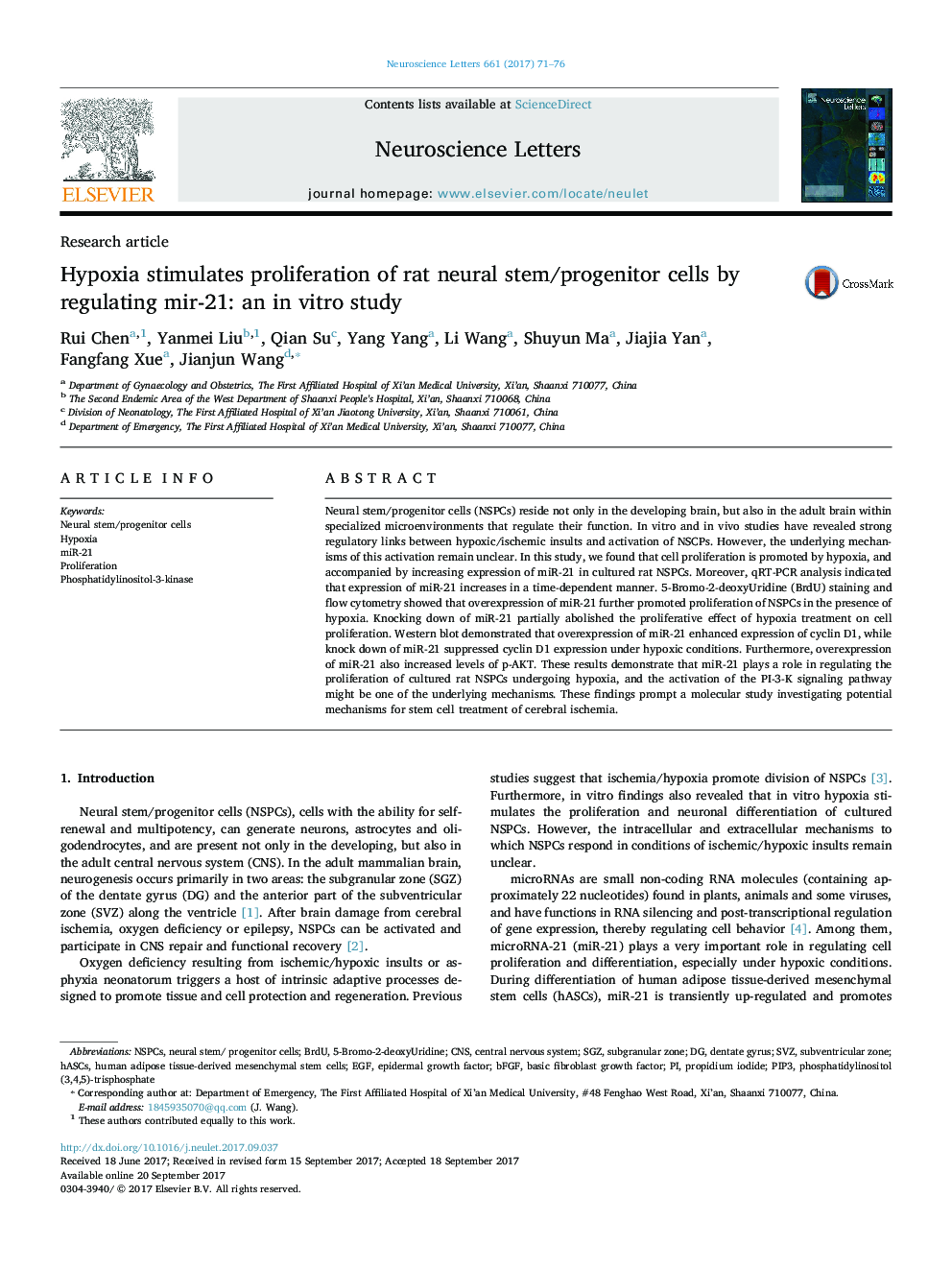| Article ID | Journal | Published Year | Pages | File Type |
|---|---|---|---|---|
| 5738374 | Neuroscience Letters | 2017 | 6 Pages |
â¢Hypoxia treatment promotes the expression of miR-21 in cultured NSPCs.â¢miR-21 promotes the proliferation of NSPCs and enhances the expression of cyclin D1 after hypoxia treatment.â¢miR-21 impacts on cultured NSPCs via activation of AKT signaling pathway.
Neural stem/progenitor cells (NSPCs) reside not only in the developing brain, but also in the adult brain within specialized microenvironments that regulate their function. In vitro and in vivo studies have revealed strong regulatory links between hypoxic/ischemic insults and activation of NSCPs. However, the underlying mechanisms of this activation remain unclear. In this study, we found that cell proliferation is promoted by hypoxia, and accompanied by increasing expression of miR-21 in cultured rat NSPCs. Moreover, qRT-PCR analysis indicated that expression of miR-21 increases in a time-dependent manner. 5-Bromo-2-deoxyUridine (BrdU) staining and flow cytometry showed that overexpression of miR-21 further promoted proliferation of NSPCs in the presence of hypoxia. Knocking down of miR-21 partially abolished the proliferative effect of hypoxia treatment on cell proliferation. Western blot demonstrated that overexpression of miR-21 enhanced expression of cyclin D1, while knock down of miR-21 suppressed cyclin D1 expression under hypoxic conditions. Furthermore, overexpression of miR-21 also increased levels of p-AKT. These results demonstrate that miR-21 plays a role in regulating the proliferation of cultured rat NSPCs undergoing hypoxia, and the activation of the PI-3-K signaling pathway might be one of the underlying mechanisms. These findings prompt a molecular study investigating potential mechanisms for stem cell treatment of cerebral ischemia.
